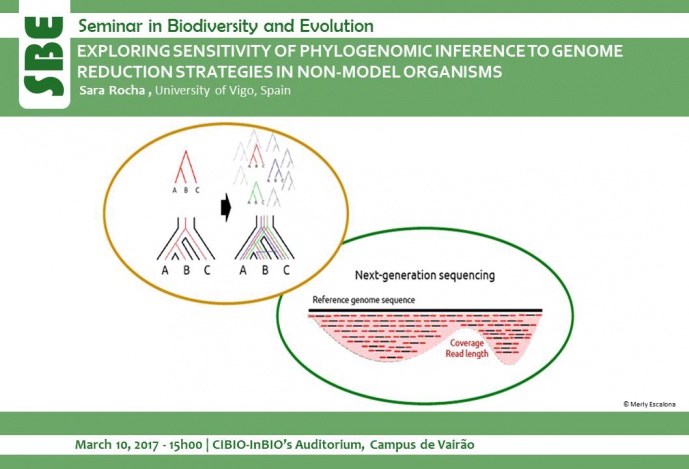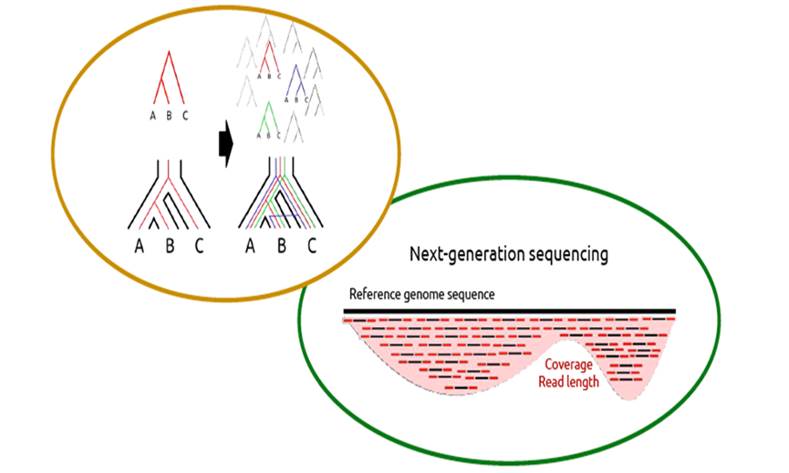EXPLORING SENSITIVITY OF PHYLOGENOMIC INFERENCE TO GENOME REDUCTION STRATEGIES IN NON-MODEL ORGANISMS


Different molecular and bioinformatic workflows have been proposed in order to reduce the genomes of many individuals to orthologous fragments while maximizing phylogenetic information. Capture enrichments can now be easily used to obtain homologous genomic regions across hundreds of individuals. However, the requirements and efficiency of this approach to solve questions at different phylogenetic levels, as well as the influence of different variables along this complex pipeline, is yet to be determined, in particular regarding to how next generation sequencing (NGS) data is generated and processed. In order to explore such questions, simulations and in silico data generation are particularly valuable. To explore the sensitivity of phylogenomic inference to several methodological and NGS parameters, we are conducting simulations of species-trees and NGS data from closely related species. I'll give an overview of the approach we are using to pursue these simulations and of our ongoing work.
Sara Rocha obtained her PhD in University of Porto in 2011. She is interested in phylogenetic inference and its use on understanding the processes that lead to genes, populations and species divergence. Most of her work has focused on colonization and diversification patterns of reptiles from Western Indian Ocean Islands (Madagascar, Comoros and the Seychelles). Currently she is a postdoctoral fellow at the phylogenomics group at the University of Vigo, where she is collaborating in several projects related to phylogenetic and specie-tree inference from closely related genomes using next-generation sequencing (NGS) data, mostly using mollusks as model organisms.
[Host: Raquel Vasconcelos, Conservation Genetics and Wildlife Management]
Image credits: Merly Escalona